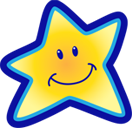Shepardson Elementary - Where All Students Shine
Challenging Students Through Differentiation

The Shepardson staff believes in differentiated instruction – working to adjust the teaching and learning activities to address individual learning needs and styles. As part of the Response to Intervention model being implemented throughout Poudre School District, and in accordance with Shepardson’s own inclusion model for enrichment and intervention, our support staff is often utilized within the general education classrooms to support students in the lease restrictive environment. You will see that even though there may be small groups working in the pods, that we attempt to keep students working on the same content, and will have support staff at all levels in the classrooms whenever possible and appropriate.
Various differentiation techniques used at Shepardson include:
Tiered Assignments
Teachers use different levels of activities for students to explore the same content but at different levels of complexity.
Curriculum Compacting
In order to eliminate repetition of previously mastered curriculum, Shepardson upgrades the challenge level of the regular curriculum and provides time for appropriate enrichment and/or acceleration activities while ensuring mastery of basic skills.
Flexible Grouping
Children are grouped temporarily according to skill, interest and/or instructional purpose.
Contracts
Agreements are made between teacher and student that allow learners to work independently on a unit of study.
High Expectations
Scoring rubrics are adjusted to match student’s capabilities. Higher grade level rubrics are used for high achievers.
Learning Centers
Stations are developed to provide content enrichment and skill development. High achieving students are expected to learn from the enrichment levels.
Independent Studies
Agreements are made between teacher and student that allow learners to work independently on a unit of study.
Problem-based Learning
Students learn through problem solving or by addressing issues from multiple disciplines that are facing the real world. The tasks and higher level skills are more complex and often result in multiple solutions. Students are highly engaged in the process since they often can select their own strategies and approaches. Sometimes they set their goals, identify their own area of interest as they control their own learning. Often they must work cooperatively with peers through the exploration and the demonstration of their learning. High levels of thinking are critical for this level of performance.
Enrichment
As part of the Response to Intervention model being implemented throughout Poudre School District enrichment and intervention is done each day through our inclusion model in class or in small intervention and/or enrichment groups. High achieving and gifted students are given the opportunity to further enrich and deepen their learning by utilizing our in-class inclusion model and occasional pull-out groups to further differentiated instruction and enrichment activities.
Use of technology
At Shepardson, we believe that technology is a tool to enhance learning. We know that the use of technology helps students stay engaged in learning and gives them vital 21st century skills. Students are given the opportunity to work with some of the latest technology in the classroom, media center, computer labs, and smaller pull-out enrichment instruction.
STEM and Inquiry Based Instruction
At Shepardson, we envision teaching curriculum aligned with academic and National Science Education Standards that promote 21st century skills and integrates Science, Technology, Engineering, and Math (STEM) along with a strong focus on wellness and the arts. This inquiry based approach to instruction challenges students to use higher level thinking and naturally promotes extensions of learning.
Some exciting examples of differentiation at Shepardson:
In the early years, standards-based learning centers provide a variety of activities to address different learning styles and needs. Parent volunteers enable children to work in small groups to explore, create and learn.
In mathematics, older students are grouped for instruction for each unit. They are given opportunities to test out of previously mastered material, and a more advance and accelerated curriculum is provided. To help students develop higher-level thinking skills, real world applications are incorporated in their daily work.
Differentiated learning experiences occur for students in a thematic unit on Africa. Students are immersed in the continent’s culture, experiencing the food, recreation, people, social structure and government. Flexible groups and tiered assignments are incorporated for students to explore the same content but at different levels of complexity.
In an integrated unit based on the Full Option Science System (FOSS) Air and Weather kit, students use the scientific method to investigate and make predictions by charting, graphing, and recording information. Reading and writing activities at each child’s level are tied to the theme. Opportunities for extended research are presented.


